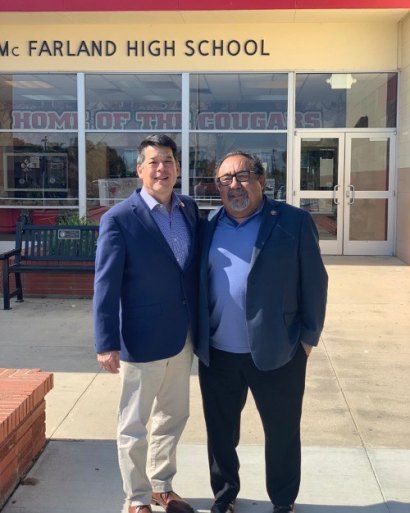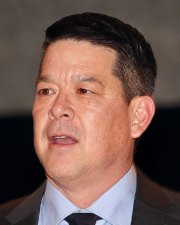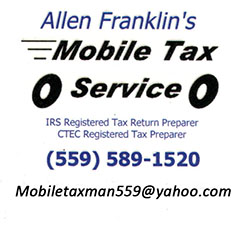Delivering for the Central Valley, so says Central Valley Congressman TJ Cox
This past week I invited Congressman Raúl M. Grijalva (AZ-03), Chairman of the House Natural Resources Committee, to visit the 21st Congressional District. I knew he needed to see, firsthand, the water resources challenge we’re facing here at home. We met with the local communities, heard from our farmers and ranchers, water districts, and community advocacy groups. We also toured the Friant-Kern Canal and Del Bosque Farms in Firebaugh.

Finishing the tour, the Chairman remarked that getting the face-to-face time with our community provided him with a better understanding of our water infrastructure needs and the sense of urgency we must take in Congress to preserve and improve water access for our Valley.
Hill Highlights
Voted YES on H.R. 1500, the Consumers First Act
In 2010, Congress created the Consumer Financial Protection Bureau (CFPB) in response to the 2008 financial crisis. Since its creation, the agency has returned nearly $12 billion to 30 million consumers who were victims of fraud and abuse by financial institutions. Unfortunately, under President Trump, the Administration has systematically weakened the CFPB and reduced oversight of the financial industry, dismantling these protections for our servicemembers, seniors and college students, and refusing to hold bad actors accountable for predatory practices.
The Consumers First Act reverses the many anti-consumer actions taken under the Trump Administration and returns the CFPB to its intended role as a nonpartisan consumer watchdog. Among its many provisions, the bill:
- Helps protect 44 million student loan borrowers against predatory practices;
- Re-empowers the CFPB to fight discriminatory lending practices; and
- Restores protections for active duty servicemembers and their families.
Voted YES on H.R. 1994, Setting Every Community Up for Retirement Enhancement Act of 2019
Many Americans are facing a retirement income crisis, with too many people in danger of not having enough in retirement to maintain their standard of living and avoid sliding into poverty. According to two recent studies, one-third of American workers believe they will either face significant financial hardship during retirement or will never retire, and almost two-thirds of workers have no retirement account assets at all.
The Setting Every Community Up for Retirement Enhancement (SECURE) Act of 2019 addresses critical retirement security issues and includes numerous provisions making it easier for American workers to save for retirement, expand opportunities for them to increase their retirement savings and ensures that all Americans are paying their share in taxes, including:
- Closing down the Stretch IRA loophole used by the wealthy to obtain beneficial tax status on inherited income;
- Providing relief to Cooperative and Small Employer Charity pension plans;
- Allowing long-time, part-time workers to participate in 401(k) plans;
- Helping provide retirement benefit opportunities to home care workers; and
- Making it easier for small businesses to offer retirement plans to their employees.
Opinion
- Valadao supports rural cooperatives, communities with legislation
- Kings Democrats condemn vandalism at Rep. Valadao's Hanford office
- Breaking down barriers to care and protecting seniors' well being
- A public perspective on health care and Medicare Advantage
- The Leader recommends Lupe Solis, Joe Neves be returned to local elected positions
- Westlands Water District celebrates 70th anniversary in San Joaquin Valley
_0.jpg)

.jpg)




